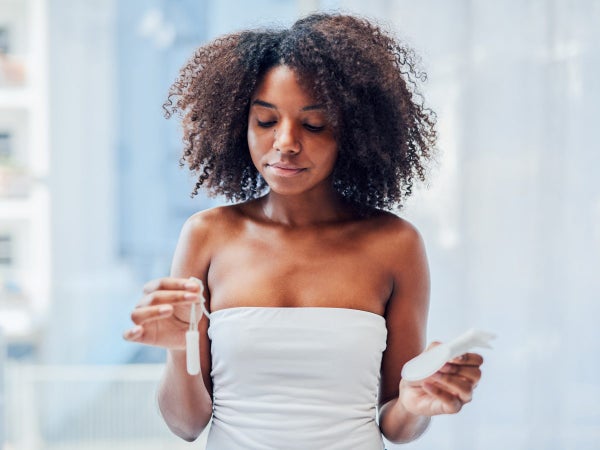 Getty Images By Noel Cody ·August 19, 2021August 19, 2021
Getty Images By Noel Cody ·August 19, 2021August 19, 2021
Have you heard of period poverty? Chances are you haven’t, but it’s a global public health issue that demands attention. So, in honor of World Humanitarian Day, a time when we honor all aid and health workers who continue, despite the odds, to provide life-saving support and protection to people most in need, we are calling out this crisis and how you can help.
Period poverty is a lack of access to menstrual hygiene tools and education, including sanitary products, washing facilities, and waste management. It is also having the right to manage menstruation without shame, stigma, or community sanction.
GloballyWhen you take a look around the world, you see one in 10 girls in Africa missing school because they don’t have access to menstrual products, or because there aren’t safe, private toilets to use at school. For example, some girls in Sib-Saharan Africa will miss as much as 20% of their school year and some may drop out of school altogether. In Kenya, approximately 50% of school-age girls do not have access to menstrual products, while in India, approximately 12% of its 355 million menstruating women cannot afford menstrual products.
LocallyHere in the United States, 1 in 5 teens have struggled to afford period products and 4 in 5 either missed or knew someone who missed class because they did not have access to period products—according to a national survey of 1,000 menstruating teens. While the Coronavirus Aid, Relief, and Economic Security Act made period products medical expenses eligible for purchase with flexible spending accounts or health savings accounts, uninsured individuals cannot access this benefit. Many students rely on school supplied products—14 states and local jurisdictions pay out of pocket to ensure that menstrual products are readily available in school bathrooms.
Now imagine if you had heavy menstrual bleeding (HMB) due to uterine fibroids and had to face the challenge of trying to manage it without safe, sanitary products. By age 50, as many as 80% of Black women have had fibroids and many African countries are actively experiencing period poverty. If you’d like to be part of the solution, check out how ActionAid is changing the lives of women and then join the global conversation going on for World Humanitarian Day with #RealLifeHeros.
The post The Period Poverty Problem No One is Talking About appeared first on Essence.


0 Commentaires